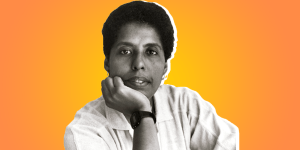Barbara Smith

A renowned black feminist as an influential leader in the emergence of Black Women Studies and major figure in the Queer Rights Movement, Barbara Smith has dedicated her life’s work to combat the challenges that came with her identity and people who shared her identity and marginalized populations within activist groups. As a queer, black women, Barbara has written essays and books to educate people about the intersectionality of blackness, queerness and class. As an organizer, writer, professor and former elected official, Barbara Smith has exhibited her progressive activism that addresses classism, sexism, racism and homophobia. Her feminists’ works were and are instrumental to Black Feminist Studies, which goes in hand with queer studies since her feminism does not exclude sexuality and identity beyond race. It is important to note that her activism revolves around intersectionality and bringing voice to people who cannot fit in movements fighting for justice since such movements unfortunately tend to exclude certain individuals due to fear of failing to advance their own agenda. Movements, in the case of gender equality, fail to acknowledge women struggles since they believe that adopting a pro gender equality stance will divert the essence of their cause. Barbara Smith’s leading voice in the Women’s Movement has experienced and challenged such patriarchal mentality.
Living during America’s Jim Crow era, Smith was an activist at an early age. Activism was always part of her life because she experienced the sexism, racism and homophobia that persisted the era. From the time she was a high school student, Smith joined boycotts, marches, protests and civil rights demonstrations in Cleveland. Attending Mount Holyoke college, she was amongst the few black women in her class of almost 400 students. As an editor for the National Observer, a Dow Jones Newspaper outside of Washington D.C., she was amongst very few women and only black employee. Leaving this uncomfortable job, she taught courses on black women’s writers and women’s studies at Emerson College and other colleges.
Her effort to place black women’s struggles in the national stage and provide a voice for black women and queer folks was done through written works. The power of her voice, delivered on paper, helped to stir conversation and provide a space for black women to express and resonate with their struggles.
Her feminist essay, “Towards A Black Feminist Criticism,” the reader witnesses Barbara Smith’s acknowledgement of the value in writing about black feminism in the manner that her essay entails. At the start of this essay, we are aware that this essay is monumental and revolutionary since, using her words, this essay is “something unprecedented, something dangerous merely by writing about Black women writers from a feminist perspective and about Black lesbian writers from any perspective at all.” In other words, this essay is a first of its kind, written in the 1970s. Barbara Smith is iconic for recognizing the importance of literature and it shows through her career as a professor and her usage of literature to mobilize women and provide a platform for the black feminist movement. However, such mobilization cannot stop at literature and literature alone is not going to provide a platform if such literature is not take seriously and take as an important part of society.
To present black feminism becomes more challenging when black feminism is attached to the intersectionality of queerness. Feminism, in Barbara Smith’s view, does not exclude people of marginalized groups meaning that queer black women were part of her feminism. Being a queer individual herself, Barbara Smith notably addresses how black women are already ignored and minimized in literature but queer black women to the public are non-existent.